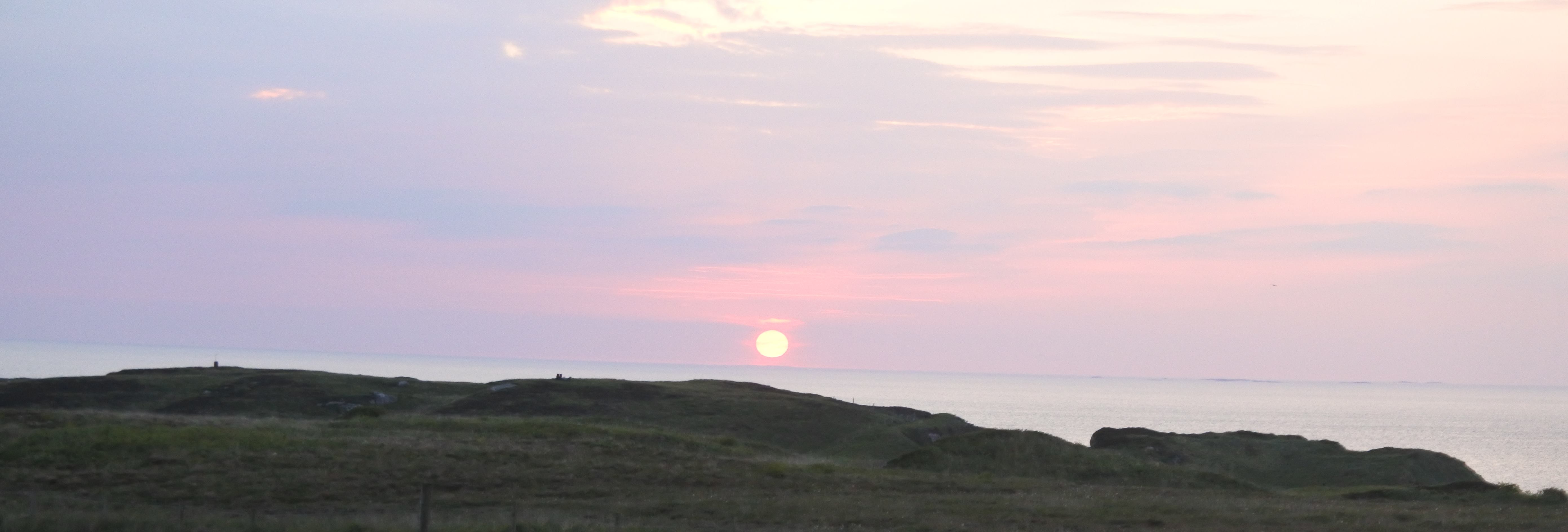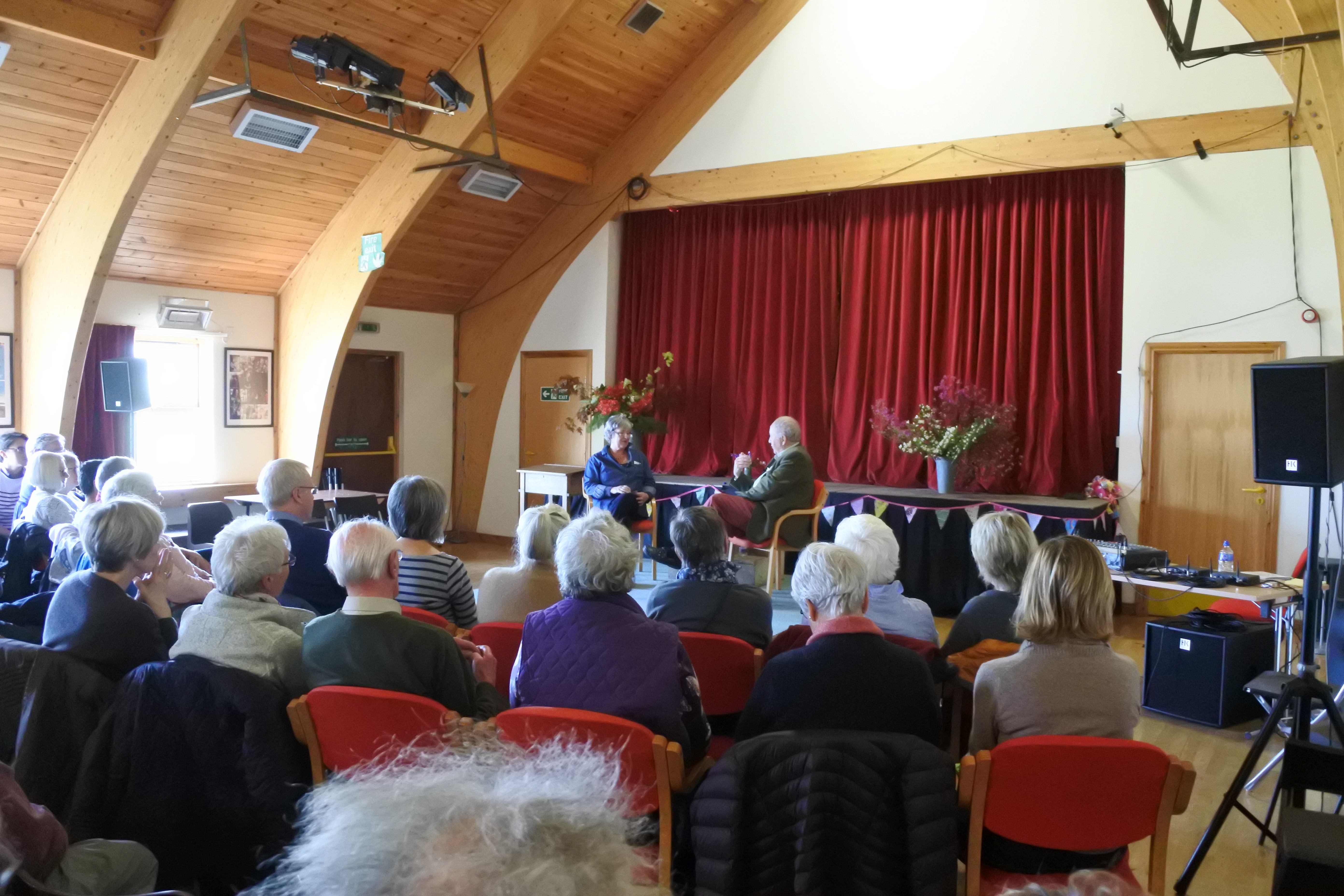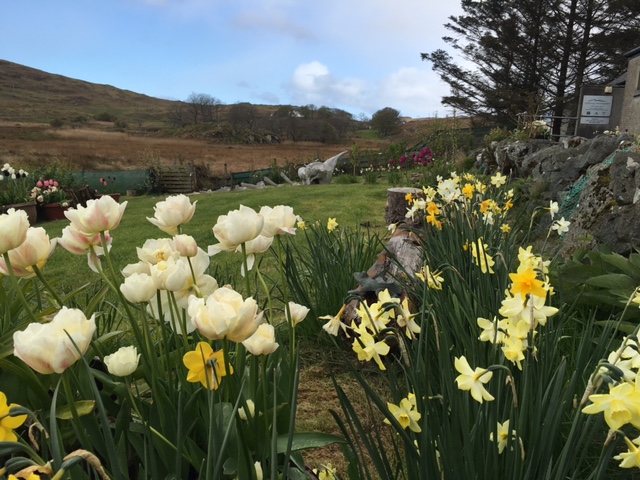
A fascinating conference took place mid June organised by the Island’s Book Trust to celebrate the life of Donald Mackinnon – first professor of Celtic Studies at Edinburgh University. As well as exploring the professor’s life and work it was a celebration of Colonsay, its culture, heritage and natural beauty.
This conference marked 100 years since Donald Mackinnon’s death. A Colonsay man, born in 1839, raised in Kilchattan and schooled on the island, he bore witness to famine, emigration and the depopulation of his birthplace during a pivotal era of change. From his crofting background Donald Mackinnon emerged as an excellent student, an able teacher and an outstanding scholar of Gaelic language and culture. His academic rise led to his election in 1882 to the newly-founded Chair of Celtic at Edinburgh University. That he also maintained a range of voluntary positions, took on numerous administrative and official roles, continued to advocate Colonsay’s interests and supported his brother Malcolm’s family in addition to his own, is testament not only to his intellect and scholarly attention to detail, but indicative of his stamina, his dedication to family and community and his social conscience.
This event emerged from a conversation with Professor Rob Dunbar at the Islands Book Trust conference in Tiree last year. The Trust, from its base in Lewis, organises regular conferences, excursions, talks and guided walks and produces a range of publications on Scotland’s islands. Rob Dunbar had just been appointed to the Chair of Celtic at Edinburgh University when Mary Carmichael approached him with the question, ‘So, what are we going to do to mark the centenary of Professor Mackinnon’s death next year?’ A conversation ensued with John Randall, then chairman of the Trust, followed by an exchange of emails involving the University, Colonsay and Oransay Heritage Trust, academics, islanders and former residents who might be willing to make a contribution. The idea was not just to focus on Professor Mackinnon’s life and work, but to look at ‘his island’ from different perspectives, covering a range of topics, historical and contemporary.
With support from Awards for All, the three organising groups combined to celebrate and promote the island in the first such conference held on Colonsay. About 30 delegates, many of them first-time visitors, attended over four days staying in local accommodation. Others came along to selected talks on a drop-in basis, local residents being charged only £3 per session. The papers given were wide-ranging and in all 12 speakers gave presentations while Local Development Officers, Hannah MacAllister and Grace MacPhee, and Sheena Nisbet, representing the Community Council, joined a panel discussion on the final afternoon. Sadly, two keynote speakers, Professor Rob Dunbar and Donald Meek were obliged to cancel unexpectedly, but their intended contributions will appear in the publication of the conference papers due out next summer. It was a great pleasure to welcome Donald Mackinnon’s great-great-grand-daughter, Catriona Davis, two of her children and several of her grandchildren to the conference and to hear her personal recollections and family reminiscences of Colonsay and the Professor.
The earlier historical period was encompassed in Ronnie Black’s meticulous presentation on Colonsay in the Dewar Manuscripts, Kevin Byrne’s breath-taking exploits of Colkitto and Alasdair mac Cholla Chiotach, and Early Travellers to Colonsay with particular emphasis on Martin Martin’s intriguing early 18th century observations, delivered by Domhnall Uilleam Stiubhart.
Di Alexander introduced the work he did here in the 1970s to collect and map the Gaelic place-names of Colonsay and Oransay, a theme which occupied Donald Mackinnon, Murdoch MacNeill (1910) and Loder (1935). Di combined and compared these published lists with maps, oral sources and local knowledge in order to plot the names while they were still (just) in current use. His exemplary work represents an invaluable contribution to our knowledge in this field and it would be good to hear the place-names being re-introduced into daily conversation, perhaps through a series of workshops, so that future generations may continue to use and understand them.
In the absence of John and Pamela Clarke, Donald MacNeill presented their paper on Traditional Farming in Colonsay and its Legacy for Wildlife; both were then able to join the conference by skype to answer questions about the sterling botanical and ornithological survey and recording work they did in the 1980s and the research they have continued to pursue.
Alastair Scouller’s presentation on Colonsay Gaelic was an eye-opener, or perhaps an ear-opener, for many, Gaelic speakers included, as he traced a path through some of Colonsay Gaelic’s key features, showing where it differs in so many respects from other dialects, but also where similarities exist with Islay Gaelic, for example. Some people were heard to exclaim afterwards, ‘Now I understand!’
Morag Law followed with a delightful selection of readings from ‘The Gaelic Writings of Barbara Satchel’, her mother, who is affectionately remembered locally as Barbara Cholla. Particularly charming and of great interest were her childhood memories of Riasg Buidhe, the now-abandoned village where she was born. A precious legacy indeed.
Following Saturday’s conference dinner David Binnie gave an illustrated overview of the current work of Colonsay and Oransay Heritage Trust and of its aspirations for the future.
Sunday morning’s ecumenical service in the Church of Scotland included Gaelic readings from Professor Mackinnon’s family Bible which had been gifted to the church after his death. In the afternoon a bus and walking tour led by Kevin Byrne took about 20 people to Riasg Buidhe, Kiloran, the cemetery at Kilchattan, Port Mòr and other locations with input on local history, poetry, place-names and landscape features provided by a range of contributers.
On the final morning Mary Carmichael and Di Alexander addressed the history of education in Colonsay during which Di read his translation of Mackinnon’s much loved Gaelic essay ‘Sean Sgoil’ about the old school which he attended as a boy in Kilchattan. This was followed by Mary’s richly illustrated selection of oral history recordings made in Colonsay between 1953 and 2012 in both Gaelic and English, some from the Sound Archives of the School of Scottish Studies and others from personal collections. The hall echoed with voices from the past and poignant references to that other centenary being commemorated this year, the First World War. There were also affectionate laughter and reminders of the typical island humour which expressed itself so creatively, perpetuating the memory of events and people in anecdote and song.
Monday also saw the furthest-travelled of contributers, keynote speaker Professor John Sheets of the University of Central Missouri, talk about ‘The Life of Donald Mackinnon’ in which he elegantly traced the interwoven strands of Mackinnon’s family, career and character, a subject which has engrossed him since his early visits to Colonsay in the 1980s. It was a revealing and insightful presentation which confirmed that Sheets’s beautifully-written published (and unpublished) work on Mackinnon and his family deserve greater exposure and recognition.
The same was said of Mackinnon’s own work, so much of which remains to be explored. At the close of proceedings Mary Carmichael suggested that an annual Professor Donald Mackinnon Lecture could provide a vehicle and incentive for further research and publication, an idea that will be aired with the University of Edinburgh’s department of Celtic and Scottish Studies.
The conference catering deserves special mention and a word of thanks to all who provided such delicious evening meals and buffets, lunches, teas, coffees and baking – Dave Kinnear and his team at Colonsay Hotel, Gavin Clark and his team at the Pantry, Sarah Moss and Carol MacNeill. The standard was uniformly excellent and greatly appreciated. Thanks also to those who provided music for the ceilidh and to Donnie Morrison for his techinical advice and support.
As well as attracting new visitors to Colonsay, the conference attracted publicity from BBC Alba and Radio nan Gàidheal. Delegates enjoyed the event and the opportunity to see the island while learning so much about the place and several have vowed to make return visits.
We might speculate that Professor Donald Mackinnon would share the community’s current optimism about the future of his island.
Proceedings of the Colonsay conference will be published by
Urras Leabhraichean nan Eilean/The Islands Book Trust in the summer of 2015
Useful websites:
www.theislandsbooktrust.com
www.tobarandualchais.co.uk
One of Professor Mackinnon’s great interests was the study of Gaelic proverbs and sayings. The one quoted below was chosen by Morag Law to begin her talk about her mother’s Gaelic writings which she collated and published in ‘Dileabh Cholasach’. But the saying could just as appropriately be applied to all those who have recognised the importance of passing on their traditions, knowledge, skills and wisdom to the following generation. It is up to us now to do the same.
Is luachmhor an dìleab
a dh’ fhàg na ginealach
a chaidh thairis againne
a thàinig nan dèidh
Precious is the legacy
that the preceding generations have left
us who came after them.
You May Also Like...
Recent Posts

The Front Page – July 2018
Though the not-quite-a-drought time eventually ended, summer did not part, as it might have done,...

The Front Page – June 2018
The warm dry spell that spread across the whole country in late spring and extended...

The Front Page – May 2018
Spring came late this year, but by May calving and lambing were well underway on...


